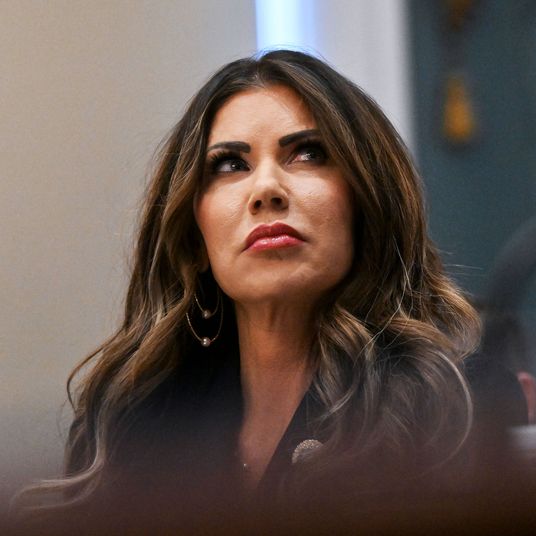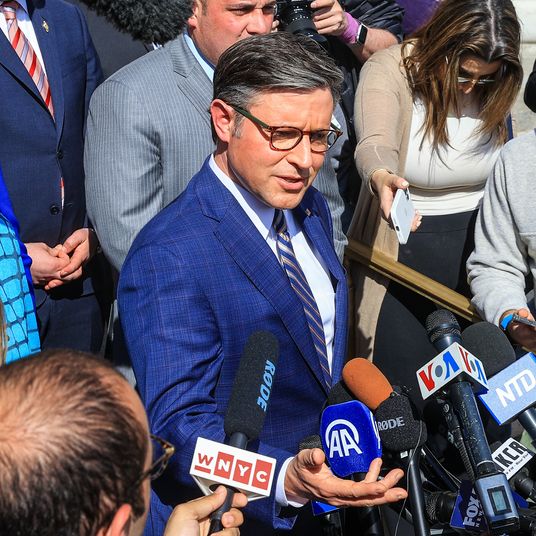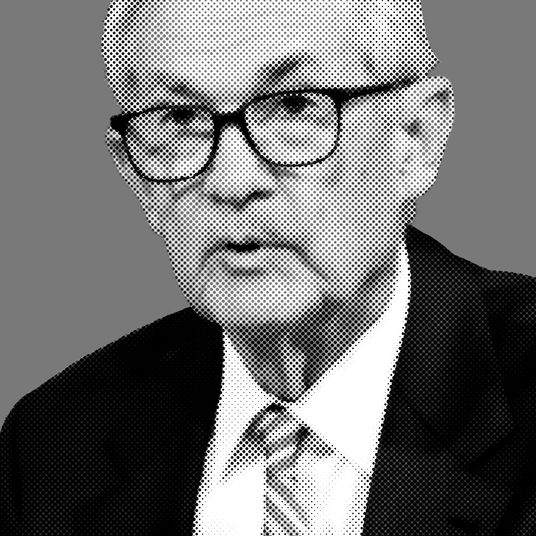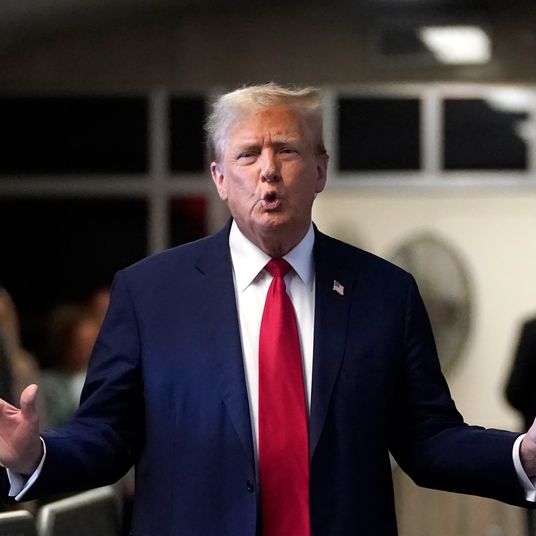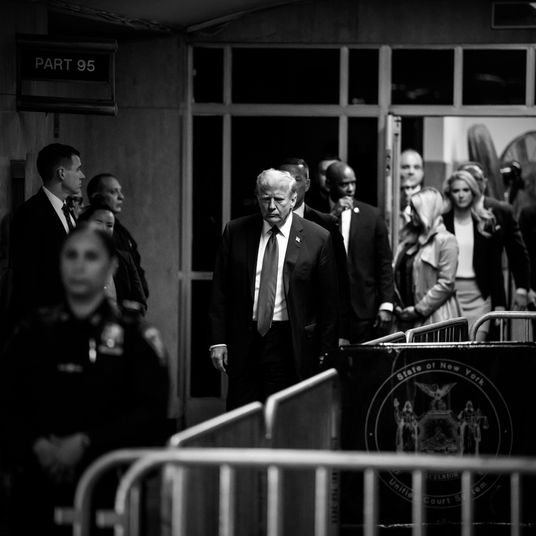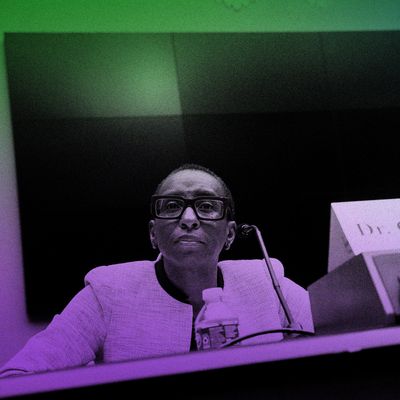
In recent years, the Harvard psychology professor and academic celebrity Steven Pinker has become perhaps as closely associated with the culture wars as he is with his well-regarded work on language or human violence. In 2020, hundreds of academics signed a critical letter, which aimed to remove Pinker from a list of “distinguished fellows” at the Linguistic Society of America over a series of his tweets they deemed objectionable, an effort that prompted hand-wringing in the press, and which ultimately went nowhere. That campaign didn’t come totally out of the blue; Pinker tends not to shy away from tussles online or off, and has a history of engaging with contentious ideas about IQ and other third-rail topics. Given his estrangement from leftward campus trends, it came as little surprise that he emerged as a fierce critic of Harvard’s messy response to the October 7 Hamas attack. In a recent Boston Globe essay, Pinker accuses the university of fostering a damaged intellectual culture and lays out a plan to save the school with a renewed focus on academic freedom. I spoke with him about whether his point of view is gaining steam, free-speech double standards, and America’s obsession with the Ivy League.
In your recent Globe essay, you wrote that “A university does not need a foreign policy and it does not need to issue pronouncements on the controversies and events of the day.” Do you think Claudine Gay should have said anything at all after October 7, or was remaining silent in that moment the way to go?
In the context of Harvard not having a policy that prohibits such statements and in the context of fulsome statements in response to events over the past few years, I think it would’ve been inappropriate not to say something. But better still if Harvard had a policy on the books going forward that the president of the university and the office of the Administration don’t comment.
I think adopting that policy in response to this particular event would itself make a statement, and so it would’ve been unwise. But once things have died down and the policy is not seen as a response to one statement or another, but rather just wisdom going forward, I do think that Harvard should adopt what is often called a Kalven policy, after the policy the University of Chicago adopted in 1967.
After October 7, some students made inflammatory statements that could be construed as pro-Hamas. Let’s say the school does put in place something close to the Kalven policy, which calls for strict institutional neutrality. Then another October 7–esque tragedy happens, and students again say objectionable stuff. Should the university comment about their comments?
I think the university does have a right, even an obligation, to comment on issues that affect its own operation or its own reputation. And so in the wake of a widespread public reaction that this is what Harvard believes, with headlines like “Harvard’s Disgrace” and “Horrible Harvard” — I have a collection of headlines from that time — I think the university has a legitimate interest in saying, “Our students can say what they want, but this is not the official position of Harvard University.” In that particular scenario, the university is implicated and does have an interest in issuing a clarification.
So the school would say “this is not our position,” without making clear what their position was, because they wouldn’t have one.
That’s right. They could have said, “we have several hundred student groups at Harvard, and these do not speak for the majority of them.” That would have certainly been legitimate.
Do you think this whole situation marks a turning point in the way Harvard and other institutions react to events? I noticed that in the statement from the school’s board supporting Claudine Gay, they admonished her for not coming out after October 7 more forcefully and said that the university’s initial statement should have been “an immediate, direct, unequivocal condemnation.” That doesn’t sound like they’re thinking of adopting a policy of neutrality going forward.
Maybe or maybe not. Because I think they were right in the context of the past history of issuing fulsome statements. I think there isn’t an option of remaining silent in the absence of a stated policy, because the silence then says something. Silence in conjunction with a policy is following the policy; silence without a policy is making an indirect comment. And so technically, what they said probably was defensible given the context of that day. Not to overrely on the now-loaded word “context,” but sometimes it is relevant.
In terms of it being a turning point, I would not be surprised if Harvard did adopt a Kalven policy, simply because having to comment is a huge headache for Harvard. Inevitably, as I mentioned in the op-ed, there’ll be some people who think it’s not strong enough, too strong, too late, too early. They should just not be in that business.
I was thinking about the Penn president Liz Magill, the only one of the three university leaders to be ousted after their disastrous congressional testimony a couple weeks ago. She had been under the gun well before October 7, in part because she okayed the university hosting a pro-Palestinian literature festival that had included some speakers who had voiced antisemitic sentiments in the past. In your vision of an ideal university, how should a president handle an event like that?
Well, as I understand, that event wasn’t even sponsored by faculty.
But it was affiliated with the university in some way.
In some way. So there’s a question of who is sponsoring these events. What’s the chain of command and who takes responsibility? I think there should be more answerability there. But it seems to me that unless there is a clear violation of speech in a First Amendment sense, or it crosses the line into intimidation or violence by some standard of a reasonable person, or just makes things uncomfortable for large numbers of students — I don’t think the university should weigh in and denounce it.
I think they should make sure there are channels for faculty and students to denounce them if they are so inclined. Assuming the event had some business being there in the first place, I think the university should commit itself to free speech. But there’s another question, and this involves a much longer-term and more systemic problem. Why are universities so surprisingly congenial to Hamas in the first place? Why should that be the speech that we’re hearing so much of, or radical, hard-left positions in general?
That relates to another issue of how entire academic programs have been monopolized by a rather extreme ideology of dividing the world into oppressors and victims, defined racially and sexually. The university can’t and shouldn’t prohibit that, but when you have multiple entire departments and curricula dominated by an extreme, Western-hating ideology, you have to ask, “How did the academic culture get to this point?” So that’s another issue, separate from whether a university should restrict speech.
Universities may be hotbeds for some of these ideas, but there’s definitely some hypocrisy going on from the other side on this. Some of the supposedly most ardent free-speech supporters have come down against anti-Israel students. There’s a certain double standard.
If critics are saying these are factually incorrect or ethically monstrous statements, that is not a restriction on speech. If you say something, you open yourself up to being criticized for it, so you don’t have any rights to be un-rebutted.
There’s been more dramatic action, like banning student groups, canceling showings of movies, and things like that.
Speaking as one of the co-presidents of the Council on Academic Freedom at Harvard, we would certainly come out against banning a student group.
For people who are genuine free-speech absolutists, there’s always going to be these edge cases, where somebody says something they really don’t like.
That’s a danger. And I think in general, the circle should be drawn as wide as possible, with the obvious First Amendment limitations of extortion, intimidation, and so on. Another line that I think should not be crossed is the use of force, as opposed to words. You are fair game to be attacked — verbally. And this issue did come up at Harvard, where I was a co-signatory of a letter denouncing the joint Palestinian student council letter. I co-signed it cognizant of the fact that this is not a restriction on speech. This is the ideal that you match abhorrent speech with more speech. There is a completely bogus sense that if you attack these poor students, you’re restricting their free-speech rights, but that’s dead wrong.
Jeff Flier, former dean of the medical school, and I wrote an op-ed in the Harvard Crimson in response to what we think was a completely illegitimate claim that this letter constrained the free speech of the Palestinian students. No, it doesn’t constrain their speech. If you say something, other people can say what’s wrong with it, but what you can’t do is punish them for it or prevent it from being expressed in the first place.
To go back to the viewpoint diversity problem you highlighted — it’s true that academics at elite universities lean heavily to the left. One problem is that if you want a real reflection of the United States among faculty, that would mean hiring a lot of Donald Trump supporters, and people who think the election was stolen, and so on. Should Harvard and other places like it be hiring those kinds of people? Because that’s where the diversity question goes off the rails for me a bit.
No, I don’t think it should match the proportion of opinion in the population, because there must be quality control on top of diversity. It can’t just be that any kook or crank opinion gets represented. But ones that meet standards of argumentation, evidence, intellectual quality — I don’t think it would be terrible. These are some of my least favorite people, but, say, the people at the Claremont Institute.
There’s an intellectual movement.
It sounds like an oxymoron — intellectual Trumpism. But it probably wouldn’t be terrible if one of those was on campus, although when I think of diversity, that would be as extreme as you’d go. But there are an awful lot of conservatives who are not MAGA conservatives.
There’s going to have to be some balance and nuance and judgment when it comes to the edge cases, but we’re just nowhere near there, especially for the various departments of ethnic studies, where it’s just completely dominated by an extreme view. I’m not minimizing your concern — I think it’s the real one and it’s a challenge — but I wouldn’t mind this if it would bring us away from the extreme that we find ourselves in now.
Do you find that a lot of people around you share your viewpoints but don’t speak out as publicly as you do about it?
Yes, and a number of them have been expressing themselves in our online email chains and LISTSERVS. And it also varies a lot by the school and the faculty, so there are an awful lot of people in the med school, for example, who are irate at the takeover of the campus by leftism.
The hard sciences — not into the settler colonialism thing?
There’s data on that. As you go from engineering through hard sciences to some of the social sciences and humanities, there’s a massive gradient, not just conservative to liberal, but beyond that to intersectional social justice leftism.
Do you feel like the momentum is shifting away from those trends in any way?
Good question. There hasn’t been a lot of public sentiment on this. Jeff Flier has published in the Chronicle of Higher Education, and there are a handful of others, but not that many. There’s an awful lot going around in these LISTSERVS, but I went public.
You’re no stranger to a little bit of controversy.
I guess not. Beneath the surface, there’s a lot of bubbling discontent with the status quo. Also, I’m on another LISTSERVS called Harvard Against Terrorism, which was seeded by that open letter in response to the joint Palestinians letter. There’s a fair number of faculty there who want Claudine Gay to be asked to resign right now. And as you know, I don’t think that’s the way to go, but there is that sentiment unexpressed publicly.
This may be a little weird to ask considering I’m talking to you in the first place, but do you think that people are focusing too much on Harvard and other Ivy League schools? The fate of Claudine Gay and the other presidents was the top story in the New York Times for three days in a row or something. These schools are used as stand-ins for American education, but of course they represent a tiny slice of college students. Most people go to community colleges or state colleges or just places that never get written about. Why are we talking so much about this? How much does it actually matter?
A legitimate question. And there is the phenomenon that once it gets talked about, that means it’s more discussion-worthy because everyone is talking about it. A lot of people do care too much about what happens in Harvard, but it is a convenient symbol, obviously not a random sample — but a lot of this stuff is much worse at much more obscure universities, and at state schools.
I get the sense that at a lot of places, there may be less of a focus on activist politics and more just, “We’re going to party. We want to get decent grades and get a job.”
Right. Tailgates and Bluto Blutarsky from Animal House and everything. No, I think many other universities are worse. Even at Canadian universities, it’s pretty bad. I just read about a case where a university announced that indigenous ways of knowing are an alternative to modern science and that actually a lot of astronomical discoveries had been made by the local First Nations people. And then a professor raised her hand and said, “Well, how did they manage to do that without telescopes?” And she was fired. [Ed note: In late 2021, Frances Widdowson was fired from her position as a tenured professor at Mount Royal University in Calgary, and she later alleged that her questioning of indigenous science “was one of the reasons for my firing.”] I think it’s a university that you and I haven’t heard of. And at the liberal arts colleges, I think it is worse, certainly the elite liberal arts colleges.
This strain of leftism on college campuses has been written about widely over the past decade, especially the past few years. And there’s a school of thought that college kids have always been like this, and universities have always been like this to some extent, and they’re just getting more attention now. Certain incidents are getting blown up into national stories, whereas they used to be ignored.
What you’re saying is true, and in fact, this goes back more than ten years, I would say it goes back 50 years.
There was definitely a wave of this in the 1990s, and then there seemed to be an interim between then and more recent trends.
You’re right, and before that, in the ’60s and ’70s, the country was obsessed with college campuses because that’s when there were takeovers of buildings; there were bombings. I think it’s not just cyclical or recency bias. I think there really has been a change, partly because as your former colleague Andrew Sullivan put it, we all live on campus now. It used to be — “Who cares? These are fraternity high jinks, and the students will enter the real world and they’ll be very quickly shaped out of it.” The opposite happened. A whole generational cohort has transformed newspapers, publishing houses, not least New York Magazine, into the campus image.
No comment.
None solicited. It really is worse by some measures at Harvard. I cited a Crimson survey — the percentage of conservative faculty in arts and sciences is 3 percent. It wasn’t that low in the past. And FIRE, the Foundation for Individual Rights and Expression, has indicated that the number of incidents of censorship and firing in the last few years are the worst ever, worse than in the McCarthy era. So I think it objectively has gotten worse. [Ed note: A recent FIRE study found that a higher percentage of faculty in all fields reported self-censoring in 2022 than did a survey of social scientists in 1955.]
Do you have hope that your vision laid out for Harvard and for higher education generally has some energy behind it now after all this, and that maybe people are more willing to listen to than they were before?
I think so, yes. Whether it will actually turn the aircraft carrier around is less clear. But things are being said now that just wouldn’t have been voiced six months ago, partly under pressure from incredulous alumni, donors, and the population as a whole. I have a collection of aghast headlines and editorial cartoons singling out Harvard.
Editorial cartoons still hold weight.
Well, I think it does indicate that people are fed up and the fact that professors themselves are starting to speak out more. Things are happening so fast. There’s a proposed new charter for the University of Pennsylvania — I don’t know if you’ve seen that?
I haven’t.
I was just asked to sign it. A number of faculty, not just at Penn, are calling to the university to rededicate itself to the academic freedom, to meritocratic admissions and hiring. And of course there was a real change, not coming from the university, but in the Supreme Court decision last June, with Students for Fair Admissions v. Harvard. So that’s legal muscle, but it may reverberate because it could be that the next lawsuit is on hiring, not just admissions. So some of this might come from outside the university, because the population as a whole tends to be losing patience.
And presumably some students feel the same way.
Absolutely, yes. And that’s a vital part of the story, that there are students who feel intimidated but have strong opinions. Some of them have formed groups, but I know just from talking to students that there are a number who wonder if they’re crazy or if everyone else is crazy.
This interview has been edited for length and clarity.







